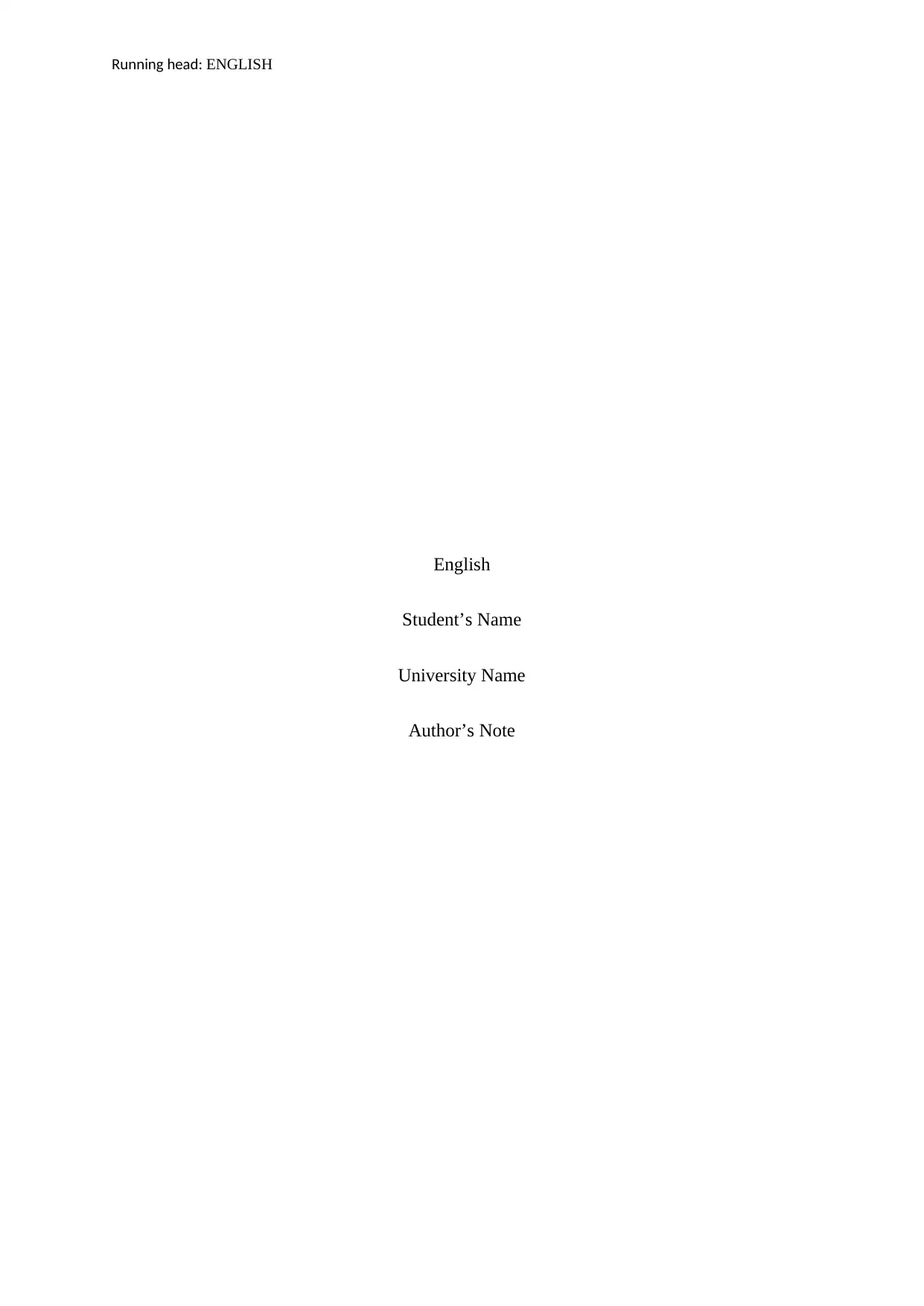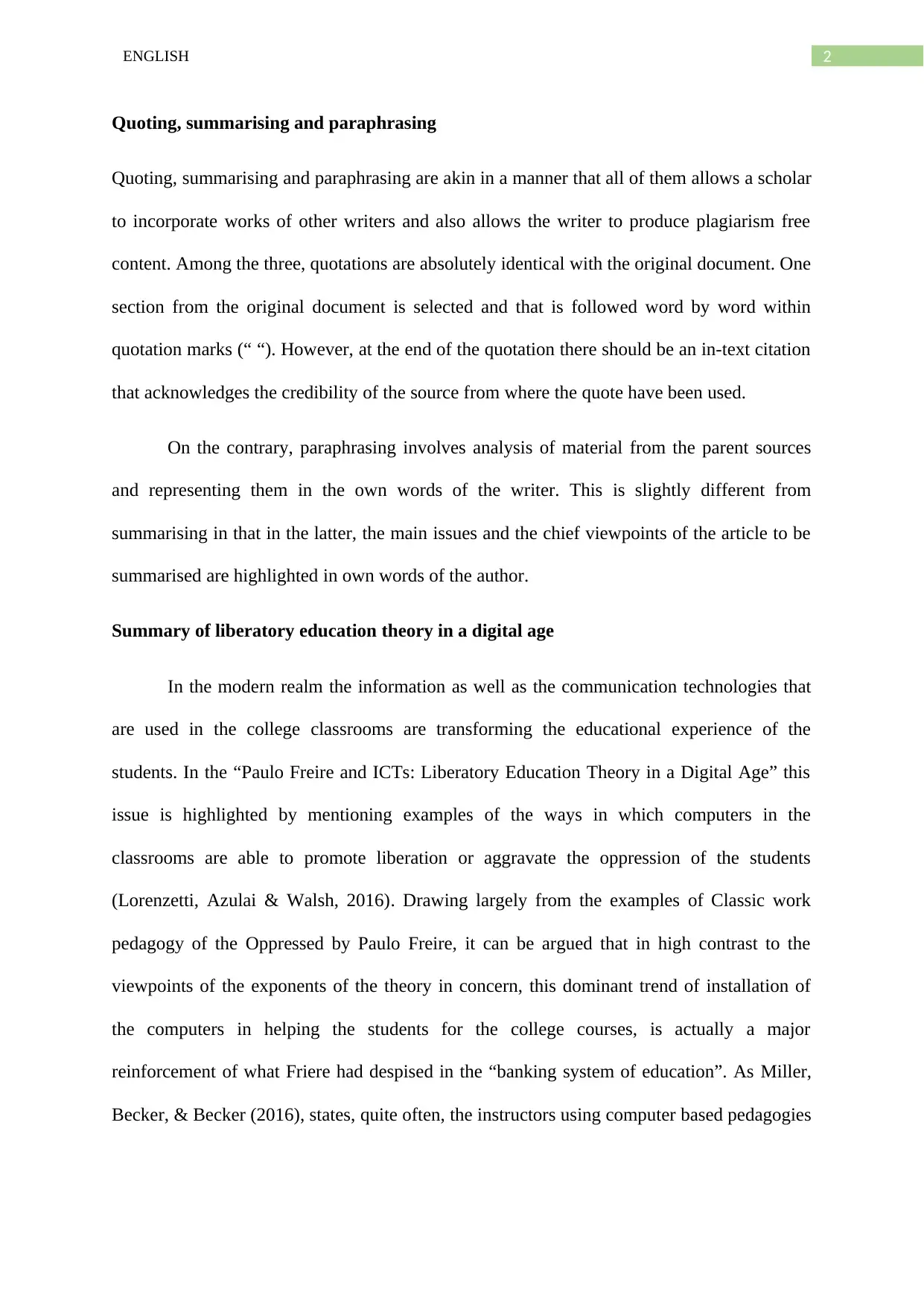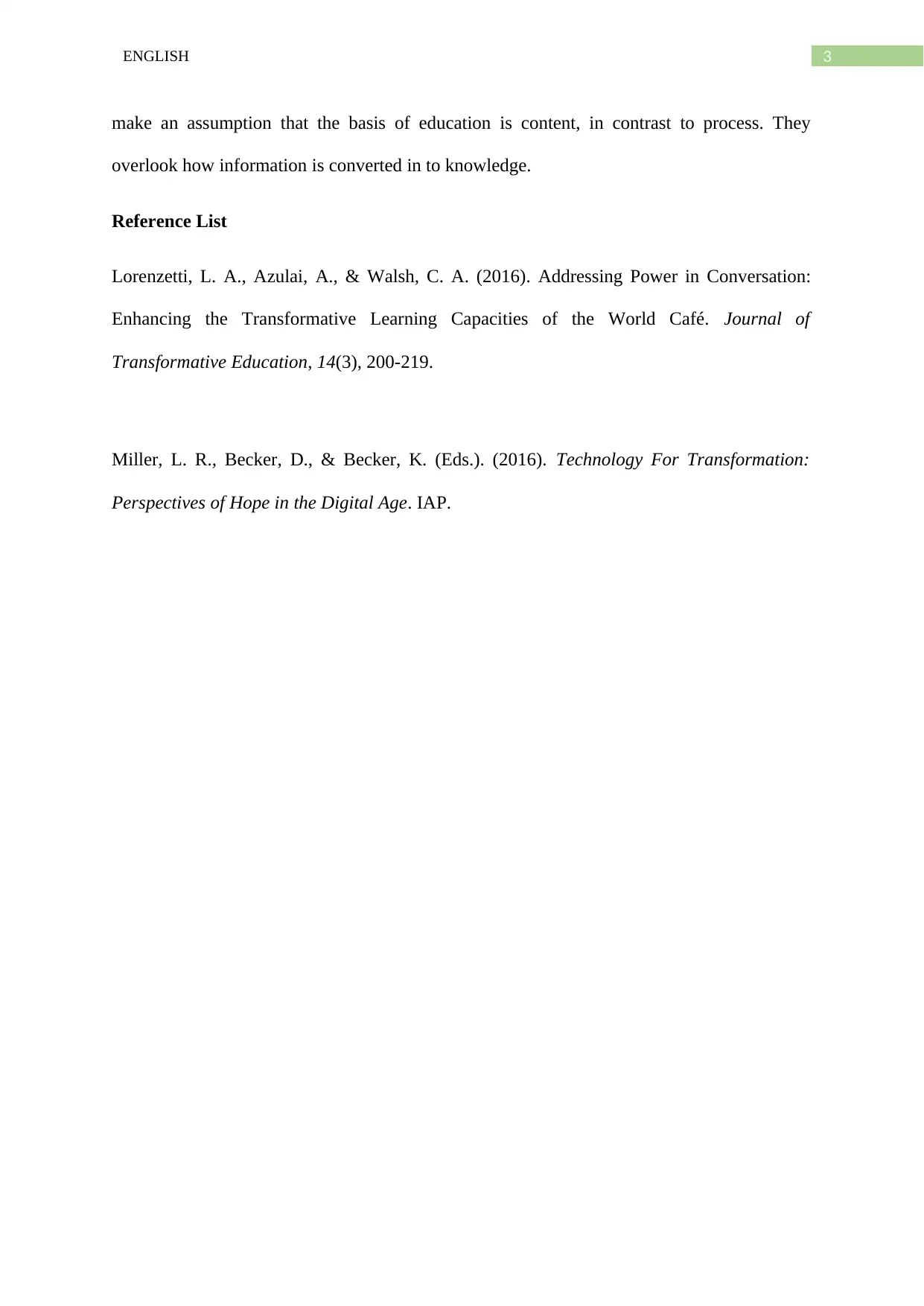English Assignment: Quoting, Summarizing, and Paraphrasing Overview
VerifiedAdded on 2023/04/25
|3
|476
|414
Report
AI Summary
This report delves into the core concepts of quoting, summarizing, and paraphrasing, essential skills for academic writing. It elucidates the differences between these techniques, highlighting the importance of in-text citations to avoid plagiarism. Furthermore, the report analyzes the application of these skills within the context of liberatory education theory, specifically examining the impact of technology in classrooms and its alignment with the principles of Paulo Freire's work. It contrasts the traditional 'banking system' of education with more transformative approaches, referencing relevant research to support the arguments made. The report aims to provide a comprehensive understanding of these concepts and their implications in higher education.
1 out of 3






![[object Object]](/_next/static/media/star-bottom.7253800d.svg)